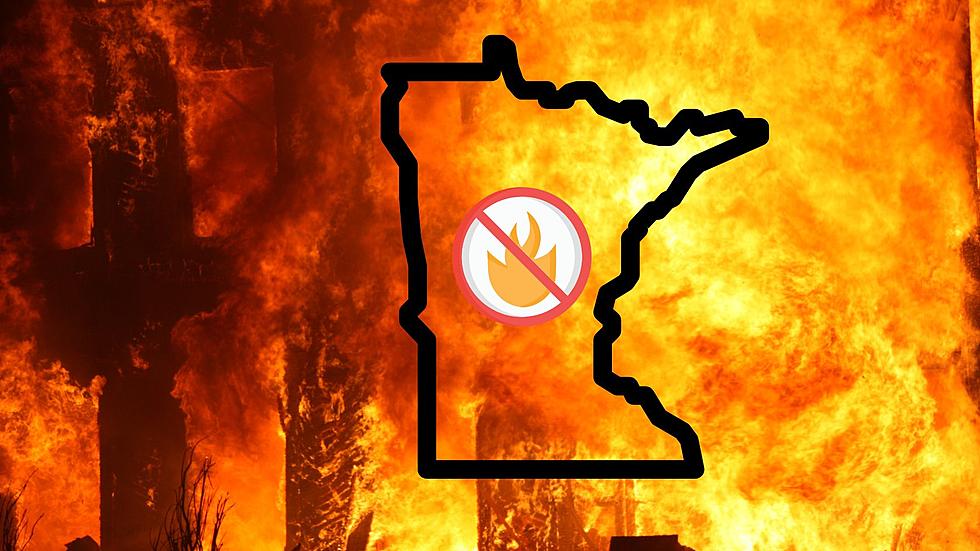
WARNING: Burning Restrictions Are Now Impacting 38 Minnesota Counties
The first official day of spring is Tuesday, March 19, but the Minnesota Department of Natural Resources isn't waiting that long to put burning restrictions in place for a large portion of the state.
Recent weather conditions have led to exceptionally dry conditions across most of Minnesota, so the Minnesota Department of Natural Resources is restricting the open burning of vegetative debris.
Wildfire risk typically increases each year after the snow melts and before vegetation greens up. However, regardless of what new snow may still fall, this hasn't been a typical winter on many levels.
“This year, we’ve seen an early start to our wildfire season due to exceptionally warm winter temperatures and less than half the average snowfall across much of the state,” said Karen Harrison, DNR wildfire prevention specialist.

Because over 90% of wildfires are caused by people, the DNR notes that utilizing spring burning restrictions is an effective way to help reduce the number of wildfires. People are urged to be careful with anything that can cause a spark, especially on dry, windy days. If a fire rekindles or escapes, the person who set it is liable for any damage caused, as well as wildfire suppression costs.
Which Minnesota Counties Have Burning Restrictions In Place?
Beginning Monday, March 18, burning restrictions are in place for the following counties, which means permits for open burning of brush or yard waste will not be issued:
- Aitkin
- Anoka
- Becker
- Beltrami
- Benton
- Carlton
- Cass
- Chisago
- Clay
- Clearwater
- Crow Wing
- Douglas
- Grant
- Hennepin
- Hubbard
- Isanti
- Itasca
- Kanabec
- Mahnomen
- Mille Lacs
- Morrison
- Norman
- Otter Tail
- Pine
- Polk
- Pope
- Ramsey
- Red Lake
- Sherburne
- St. Louis County (southern half)
- Stearns
- Stevens
- Todd
- Traverse
- Wadena
- Washington
- Wilkin
- Wright
DNR wildfire prevention specialist Karen Harrison encourages residents to use alternatives to burning to dispose of yard waste, such as composting, chipping, or taking brush to a collection site.
More information can be found on the DNR's composting for woodland owners webpage.
The DNR adds that burning restrictions will be adjusted as conditions change. Daily updates on fire risk and restrictions, as well as other related information, can be found on the DNR website's statewide fire danger and burning restrictions page.
LOOK: Must-do activities at every national park
Gallery Credit: Angela Underwood
LOOK: The 25 least expensive states to live in
Gallery Credit: Aubrey Jane McClaine
